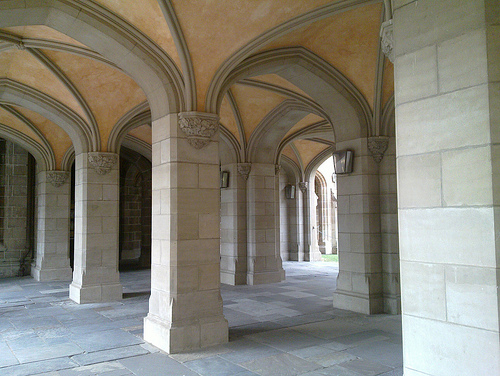So, you’ve decided to study in Australia? Every year, many Indonesians choose to study in Australia because of its proximity to Indonesia (Australia is Indonesia’s neighbour with just 4 hours away separating these two countries) and also because it offers world-class education. Hence let’s make sure that you have chosen the right university in Australia! There are some factors that you can consider while thinking about which university you want to apply to. Here they are:
1. What kind of cities or areas do you want to live in?
This depends on what sort of person you are. For example, You can choose to live and study in:
i. Melbourne, because you love cafes and coffees, vintage goods and indie bookstores, or
ii. Sydney, because it’s a metropolitan, vibrant commercial hub, or
iii. Perth, because it’s quiet and it has beautiful natural landscape, just to give illustrations.
2. Is your chosen program available in that university?
After deciding your program/major, it is worthwhile to see which university has the program. For business and accounting almost every university has them but not every university has specific programs like actuarial studies and translation studies.
3. Is it on the top rankings? Is it on Group of Eight?
If you are the type of person that is serious about your study and how good your program is, you will be thinking about rankings.
In the QS World Ranking 2014/2015, number 1 is Australian National University, number 2 is the University of Melbourne and number 3 is the University of Sydney.
In the Times Higher Education World Ranking 2014/2015, number 1 is the University of Melbourne, number 2 is Australian National University and number 3 is the University of Sydney.
Group of Eight is an elite coalition of leading Australian universities. Its eight members are the University of Western Australia, Monash University, Australian National University, the University of Adelaide, the University of Queensland, the University of Melbourne, UNSW and the University of Sydney.
The rankings above concern the overall ranking. In my personal experience, it is actually better to check your specific program’s rank.
For example:
Arts and Humanities – 1st: Australian National University
Clinical and Pre-Clinical Health – 1st: University of Melbourne
Engineering and Technology – 1st: University of Melbourne
Life Sciences – 1st: University of Melbourne
Physical Sciences – 1st: Australian National University
Social Sciences – 1st: University of Melbourne
There is a great website called www.australianuniversities.com.au where you can check the specific ranking of your program, both in undergraduate and postgraduate levels and compare universities (up to 3) in Australia as well.
4. Do you have relatives/family members/good friends there already?
If you have relatives/family members/good friends in one area already, you might be thinking of moving in with them to save accommodation cost or to be in a familiar environment. Your choice of university might depend on the area in which they are living in. For example, a friend of mine came from Malaysia to Australia to study and stays with her aunt’s family. Since her aunt’s family lives near Australian Catholic University, she goes to that university because it is easier for her to go back and forth between university and the house.
5. Do you receive recommendations from your network to attend that particular university?
Sometimes friends or family members or even friends of family members gave recommendations on how good a program is at a particular university. Likewise, they might give bad reviews about a particular program or a particular university. You can listen to them while keeping an open mind.
6. How is the university’s graduate outcome?
We study in a university to graduate and work. Therefore, employability matters. Some universities tend to be more theoretical, while others tend to be more practical in nature. According to Global Employability University Ranking 2014, the most employable graduates come from Australian National University, followed by Monash University and University of New South Wales.
Personal Experience:
Personally, I chose the University of Melbourne for my Master of Publishing and Communications degree. After seeing the overall ranking of the university, I studied the the program structure. It seemed to be more theoretical compared to another university in Victoria, Monash University. At that time, I needed that because I didn’t have a background in editing and publishing, hence I needed the theories as well as internship offered. However, after seeing the publishing industry and its job prospect in Australia, I decided to change my course altogether. The location of University of Melbourne is great since it is really close to the city. I would have pursued my Translation degree in the University of Melbourne if not for the fact that they do not have a Translation degree for Indonesian language. In fact, they have just opened a Translation degree for Mandarin Chinese language this year (2015). I did not want to move to another state and I wanted to remain in Victoria; that is why I chose to go to Monash University. It does not hurt that many friends said it has one of the best translation programs in Australia, accredited by National Accreditation Authority for Translators and Interpreters (NAATI) and has Indonesian language program. Apart from it, the program structure looks comprehensive enough and the Translation stream also offers internship, something that I really want to experience.
To conclude, knowing the program structure and matching it with your need is the first step you need to take. Second, the quality of the program and accreditation also needs to be researched. Third, the graduate outcome (like internship option) must be considered as well. For me, I actually prefer to study and live near the city, but for education’s sake, I chose to overlook the location, as long as it is still in Victoria, Australia.
Photo: Chris Samuel, used under Creative Commons License.










